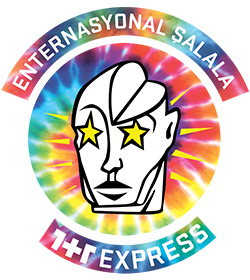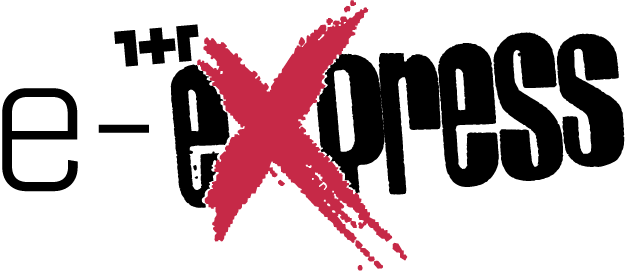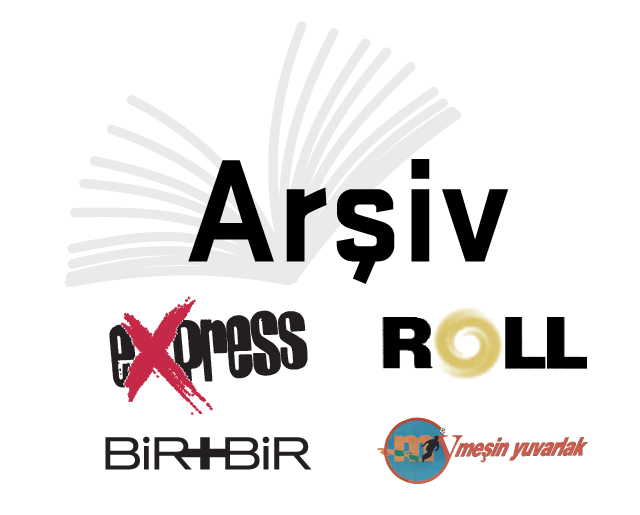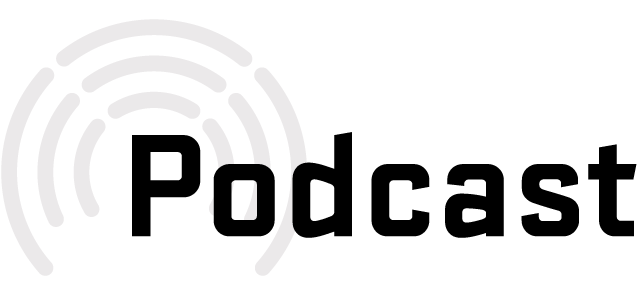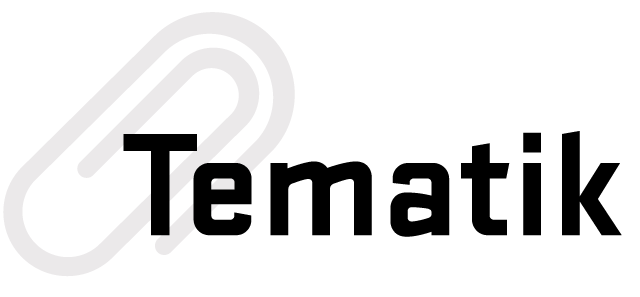An acute problem for workers who decide to establish cooperatives in order to build lives without bosses is the lack of capital. Coop57 is a cooperative which was borne out of class struggle to solve precisely this problem. Coop57 uses the collective savings of workers to spread solidarity economics and bring the principles of ethical finance to life. Xavi Teis, a worker of Coop57, tells their story.
How was Coop57 founded?
Xavi Teis: It’s fair to say that Coop57 is one of the “authentic children” of the labour struggle. In 1986, Barcelona-based Buruguera, Spain’s largest and Europe’s third largest publishing house closed down. It had more than a thousand workers at the time. It was mostly known for its comic books and many generations grew up with their publications. The process of continuous growth was not managed effectively and Buruguera went bankrupt. Most of the workers accepted the conditions that were offered, however, a certain number of them did not find the indemnities sufficient and decided to organize. First, they occupied the factory with the aim of bringing it to its feet. The goal was transforming the factory into a cooperation. However, this goal was not reached due to many difficulties. Next, the workers locked themselves up in the factory. Some of them set up a camp in Sant Jaume Square, the heart of the city. They carried out a struggle which had widely resonated. After three years of court proceedings, the workers earned their right to additional compensations. Moreover, the court decided that the company had to pay the workers their salaries for the three years that elapsed with struggle. Unfortunately, this type of right is non-existent today. As a result, the workers ended up with a considerable amount of capital in their hands. They made a three-step plan to express their gratitude for the solidarity they received during those three years.
Moreover, the court decided that the company had to pay the workers their salaries for the three years that elapsed with struggle. Unfortunately, this type of right is non-existent today. As a result, the workers ended up with a considerable amount of capital in their hands. They made a three-step plan to express their gratitude for the solidarity they received during those three years.
First, in the name of international solidarity, they transferred some of their capital to the Sandinista movement in Nicaragua. Some of the capital was also given to the members of the Farm Workers Union (SOC) who fight against the big land owners in the Andalusia region and work under very poor conditions. Currently, a serious land injustice, a latifundium system is being carried out in Andalusia. The rest of the capital has been used to build a “resistance piggy bank”. For instance, workers who lose their jobs would have funds to use if they decide to occupy a factory and establish a cooperation. The roots of Coop57 go back to this “resistance bank”. The workers prepared a plan with Ronda Lawyers Cooperative to determine how they can use this money and formed a financial services cooperative. This is a services cooperative as its name implies. Therefore, it can legally engage in economic activity. However, it is subject to cooperative law rather than banking regulations. Hence, it can extend credit to its members without establishing a bank.
In what areas and to what type of organizations do you provide loans?
We extend loans to organizations that operate within social and solidarity economy (SSE). We cover all areas in the domain of cooperatives. Aside from this, we provide capital to associations, foundations, non-governmental organizations, businesses established by those that are subject to social exclusion, agricultural production cooperatives, workers’ unions and many interesting SSE initiatives. We exclude commercial enterprises even if their activities fall within SSE. We place importance on legal status. On the other hand, being a part of the SSE network is not the only criteria. It is not sufficient for an organization to be established as a cooperative. We assess all organizations that apply to us based on certain criteria. To give a simple example, a cooperative that manufactures guns cannot receive funds from us no matter how “cooperative” it is.
Coop57 was born to support the projects of cooperatives that provide employment. Coop57’s reason for being is try to transform the logic of the existing capitalist economy. By providing capital for such projects, we aim to build an economy that serves the whole humanity and an equitable social life.
How does the participation of individuals and institutions that provide deposits take place?
There are two types of partnerships. Anyone who gets in touch with and entrusts their savings to Coop57 becomes its partner. There are no “client” figures in our system unlike establishment banks. We work with our cooperative partners rather than clients.
Coop57 was born to support the projects of cooperatives that provide employment. Coop57’s reason for being is those types of SSEs that try to change and transform the logic of the existing capitalist economy. By providing capital for such projects, we aim to build an economy that serves the whole humanity and an equitable social life. We demand the capital required for this goal from the general public. To people who have some accumulated money in hand, we say “Bring your savings to us and let us use them to give credit to solidarist economic organizations until you need them”. Thus, two types of partners emerge. On one side, there are the SSE initiatives that demand financial services from Coop57. On the other, individuals and legal entities that entrust their savings to us become our “participating partners”. The distinction between the service partners and participating partners is important. People and institutions who deposit their savings to Coop57 become “participating partners” directly. The process is different for the service partners. We first want to get to know the projects of the organization that applies for credit because we bear the responsibility of the savings of our participating partners. We are obligated to direct these funds to projects that aim to transform the economic system. Thus, an organization that wants to become a service partner first passes through a “social evaluation process”. The two questions we seek answers for are “What will this organization do?” and “How will it do it?”. If the answers are compatible with the principles of Coop57 and SSE, then we provide the financing.
The distinction between the service partners and participating partners is important. People and institutions who deposit their savings to Coop57 become “participating partners” directly. The process is different for the service partners. We first want to get to know the projects of the organization that applies for credit because we bear the responsibility of the savings of our participating partners. We are obligated to direct these funds to projects that aim to transform the economic system. Thus, an organization that wants to become a service partner first passes through a “social evaluation process”. The two questions we seek answers for are “What will this organization do?” and “How will it do it?”. If the answers are compatible with the principles of Coop57 and SSE, then we provide the financing.
What are these principles?
Localness is important. Therefore, we look at the extent of the relation that the organization forms with the region and locality that it operates in. We conduct a thorough investigation by examining the dimensions of collective labour, to what extent democracy is adopted in the economic realm, how much engagement is present with the feminist perspective, the degree of cooperation with other organizations and the perspective of the organization with respect to social transformation. We are aware of the difficulty of adopting all of these principles simultaneously and fully. However, at the minimum, we look for consistency towards the ecosystem we are aspiring for. After this evaluation, if you are accepted as a service partner of Coop57, you can apply for financing. Hierarchical organizations that are legally incorporated as cooperatives and seem to exist within SSE but operate similar to a commercial company cannot pass the evaluation.
We conduct a thorough investigation by examining the dimensions of collective labour, to what extent democracy is adopted, how much engagement is present with the feminist perspective, the degree of cooperation with other organizations and the perspective of the organization with respect to social transformation.
How does the social evaluation process work?
We have a committee that carries out this process. The social survey that we designed is not that complex. Basically, we can detect different dimension of the cooperative, its roots and goals, how it achieves these goals, its internal structure, how and by whom the decisions are taken, how these decisions are implemented and their impacts. We look at the economic circumstances, salary levels, the relative roles of men and women and the care that the organization attaches to the environment. In a nutshell, we take a photograph of the entity via these surveys. If some of the responses we get are not detailed enough, we conduct a more detailed examination. Our social committee visits the cooperative to witness its operations on site. For example, we want to ascertain whether the cooperative is steered by one individual or not. We observe the attitude of the cooperative’s partners. Our social commissions consist of our participating partners. They devote some of their free time to Coop57 without any remuneration. Being part of this committee also incentivizes those individuals who are engaged with the SSE organizational form. You get to know the people who want to put this kind of economy into practice firsthand. The members of the committee also need to be familiar with Coop57 very well. They must have internalized the principles of SSE. A participating member of Coop57 cannot become a part of a committee immediately. We expect candidates for the committee to attend the councils and we get to learn about each other gradually. At one point, the social evaluation committee prepares a report. The board of Coop57 reviews the report and decides on the outcome of the service membership application. The board is chosen by all members. The report prepared by the social committee members is the main factor behind the decision. However, the committee cannot make the conclusive decision since its members are not chosen by all the partners that constitute the council.

How many projects do you support each year?
Our existing partners can demand credit as much as the amount underlying our new partners’ credit applications. Currently, Coop57 has 900 service partners and 4,300 participating partners. In 2018, 92 organizations and 350 individuals joined our cooperative as participating partners. Last year, we provided loans of more than 4 million euros to 262 projects. In the decade ensuing the destructive crisis of 2008, we extended 90 million euros of loans to 2,500 organizations. The momentum has picked up in the last four years, we’ve extended 1,500 loans that correspond to a total of about 55 million euros in this period. These numbers may seem minuscule in the finance world but they mean a lot for an ethical finance organization that was borne out of a factory resistance. A bank such as La Caixa reaches these numbers within a day, however, we assess the value that is created on qualitative rather than quantitative terms. We want to establish an alternative financial and economic model is practically feasible.
Could you give some examples of the projects you’ve supported recently?
The first one is La Borda housing cooperative project. It is located in the Sants district which holds a significant place in Barcelona’s history of cooperatives. La Borda was established in 2011 within the initiative that occupied Can Batlló, which is a long-abandoned old textile factory site that was founded at the end of the 19th century. Different neighborhood unions, activist organizations that transform occupied spaces to social centers and many cooperatives that operate in Sants came together to constitute the Can Batlló Platform. La Borda has 50 members who are social housing residents. It is a construction cooperative which is based on usage rather than property rights and it currently owns 28 social housings. The cooperative’s center is also exotic: the tallest wooden building in Spain. The total cost of the La Borda project is about 2.7 million euros. A significant part of the financing was provided by the contributions of the members of the cooperative and monthly dues (27 percent of the total costs) and a loan of 800 thousand euros granted by Coop57 (16 percent of the total costs). The cost of the participatory financial securities worth 865 thousand euros that has been distributed as a result of the campaign initiated in 2017 by Coop57 and La Borda Cooperative has also been undertaken by the cooperative.
Another large project for which Coop57 provided financing is the Patufet (Smurfs) School. Patufet was a public school in the Gràcia district of Barcelona which faced closure. School teachers and students’ parents swiftly organized and formed El Nou Patufet (New Smurfs) Cooperative. The new school opened on September 1, 2015 and 400 thousand euros of the initial expenses were met by a loan with 123 months to maturity provided by Coop57. El Nou Patufet incorporates cooperative values and principles such as collaboration, responsibility, democracy, equality and solidarity to its course curriculum.

How do you decide on the interest rates that are applied to the loans?
They are determined based on the board’s proposal and the decision given by the general council of Coop57. The board makes forecasts about the subsequent year by relying on the research conducted by the technical team. In reality, we do not use the term “interest rates” because words also have political functions. Just as we do not operate using the logic of establishment banking, we also pay attention to not using its concepts. The terms we use are “service fees for savings” and “financing cost of debt”. We do not want to name the payments made for the savings as “interest rates”. This is because although the savings of partners at Coop57 get updated within a small margin, we do not pursue the goal of growing these savings. On the other hand, we need to relate the financing cost of the loan with the loan itself. Otherwise, Coop57 would become unsustainable. Moreover, certain expenses such as closing costs and cancellation fees charged by establishment banks are non-existent for us. The financing cost of debt is the same for all service partners that request loans from us.
In the last four years, we’ve extended 1,500 loans that correspond to a total of about 55 million euros. These numbers may seem minuscule in the finance world but they mean a lot for an ethical finance organization. We assess the value that is created on qualitative rather than quantitative terms.
What other differences are there between Coop57 and establishment banks?
I want to say a couple of more things about the costs and pricing: For example, we may provide funding to cooperatives with an annual cost of 4.9 percent in 2019. How does this compare to establishment banks? If the cooperative that is asking for credit has a long history and an economically sound infrastructure, the banks will provide loans with a rate lower than 4.9 percent. However, if the cooperative is young and it has a small amount of capital, the banks will apply an interest rate between 7 and 9 percent. However, this comparison also does not reflect our organizational philosophy since our evaluation criteria are different from those of the establishment banks. The large projects that we support make it possible for us to finance the small projects. As a result, a relationship based on solidarity is “unwittingly” formed between the service partners. The board makes forecasts regarding the upcoming year and, this way, we are able to determine the amount of credit we can extend and the service fees. The decision is finally voted upon in the general council. Another difference is our financialization margin. Financial institutions within the system keep this margin as high as possible because profit maximization is maintained through this channel within the capitalist system. Both maximum profitability and minimum risk/responsibility is targeted at the same time. Furthermore, establishment banks do not care about the labour conditions and the environmental damage associated with the projects that they extend credit to. While paying attention to these aspects, Coop57 is also certainly mindful of the feasibility and sustainability of the projects. Thus, it is important that the financialization margin that we set forth is compatible with this goal. We also care about generating a small common value when we decide on the financialization margin each year. This common value is crucial in order to instill confidence. Therefore, we also decide on how much common value we are targeting each year. This decision determines how many projects we can support in a year to some extent.
Another difference is our financialization margin. Financial institutions within the system keep this margin as high as possible because profit maximization is maintained through this channel within the capitalist system. Both maximum profitability and minimum risk/responsibility is targeted at the same time. Furthermore, establishment banks do not care about the labour conditions and the environmental damage associated with the projects that they extend credit to. While paying attention to these aspects, Coop57 is also certainly mindful of the feasibility and sustainability of the projects. Thus, it is important that the financialization margin that we set forth is compatible with this goal. We also care about generating a small common value when we decide on the financialization margin each year. This common value is crucial in order to instill confidence. Therefore, we also decide on how much common value we are targeting each year. This decision determines how many projects we can support in a year to some extent.
 What is meant by the feasibility, reliability and sustainability of the Coop57 project?
What is meant by the feasibility, reliability and sustainability of the Coop57 project?
It is requisite that Coop57 pays the salaries of all its employees. We generally grant funding to projects that would not be financed by establishment banks, however, we believe that those projects are implementable. Of course, there is always a certain level of risk involved. Some of the projects that we finance fail to achieve success. Hence, we always leave a margin and do not distribute all the savings we possess. For the same reason, we keep the number of employees restricted at a maximum of ten. We must build intelligent tactics. Yes, we are all militants politically. However, if we keep the financing cost high, cooperatives will not apply to us. We are obliged to find a balance by splitting hairs between our strong will for social change and market conditions. This year, we are paying an annual “service fee” of 0.15 percent to the savings. Although the market is paying a lower “interest rate”, we do not aspire to compete with establishment banks.
Today, “financial money production” is more prevalent than “print money”. The financial sector has a command over most of the financial flows. In contrast, you work with “fiat money” that the government prints. What kind of difficulties does this pose for you?
The logic of the financial system not only affects Coop57 but also overall social structure. In other words, the hegemony that capital has over social relations also determines how all power mechanisms are established. “Debt” has a big influence over today’s power relationships. And banks work with the money that they themselves “create”. This is a value that has no correspondence in social production. Banks such as La Caixa provide loans that amount to more than forty times the money that they have in hand. This financialization deeply impacts all social relationships. We hold savings of 40 million euros and, unlike establishment banks, the credit we provide is capped by this amount. Coop57 is a part of this society and the financial system does not impact us in a way different than it does the rest of the society.
We must build intelligent tactics. Yes, we are all militants politically. However, if we keep the financing cost high, cooperatives will not apply to us. We are obliged to find a balance by splitting hairs between our strong will for social change and market conditions.
What are the biggest obstacles that ethical finance organizations face?
The fragility of many projects that we finance and the ensuing risk that we assume is the main problem. Another difficulty is that not all organizations that operate in the field of social and solidarity economy know about us. There is a systematic imbalance that both Coop57 and other ethical finance organizations face: We own more savings than the financing that we provide. In other words, we have idle resources in our hands. For example, we can provide more than 10 million euros worth of financing to cooperatives as of today. There are reasons behind this difficulty that are independent from Coop57. It is easier for people who approach the banking system critically and do not want to hand over their savings to the banks to entrust these savings to Coop57 compared to people who work in large corporations to quit their jobs and form a cooperation by assuming a lot of risk. On the other hand, the SSE model is still in the stage of growing. If we talk about the Catalonia context, the size of social and solidarity economy is still not large enough. We are little known yet. Sometimes people ask us how we are going to grow and we reply “We do not aim to grow”. Our goal is for social and solidarity economy to proliferate and spread. As this model becomes more common, the financing needs of projects will also increase. If we ever “grow”, growth will come as a result of this process. Our logic is not geared towards growth per se.

How widespread can an ethical finance organization become without getting help from the local government or from other public institutions?
I should say that we are cautious regarding our relations with public institutions. A fundamental principle of Coop57 is autonomy. We’ve always worked by relying on our own equity and we’ve never applied for public grants. We intend this to continue. On the other hand, we have joined forces with municipalities since 2015. The number of municipalities that want to support the social and solidarity economy has increased recently. A partially accurate opinion that employment in cooperatives has not decreased during the economic crisis has emerged. These two developments caused public institutions to support SSE. However, at the outset, we did not know how to weave our relationships with public institutions. This is true not only for Coop57 but for all organizations based on solidarity economy. We made mistakes during this process but we also learned a lot collectively. We are observing a common concern across the SSE area: What if the administrations of the municipalities change and they no longer support SSEs? Let me make a note of this concern for now and talk about how we collaborated with the Municipality of Barcelona which is governed by En Comú Podem. Barcelona municipality wants to support SSE just as we do. We asked “Since we have this common goal, why don’t you join us in sharing the risk?” to the municipality. We do not expect the municipality to finance the cooperatives. When we provide funding to the projects, we also assume all the project risks. We proposed that if the projects that we incentivize turn out to be unsuccessful, we could bear the costs together rather than shouldering them all by ourselves. Risk sharing is an interesting way of collaborating. We realized this with the municipalities in Barcelona and Mataró. We are still in negotiations with the Autonomous Government of Catalonia.
How do you share the risks?
We have established a fund with the Municipality of Barcelona by putting down 100 thousand euros each. If the projects we support are all successful, we do not need to tap in to the joint fund. However, if a project worth of 50 thousand euros does not reach its goals, then we share the losses evenly with the Municipality of Barcelona.
What are some other ethical finance organizations in the world? Which ones inspire you the most?
Coop57 is one of a kind. Financial organizations that operate outside the banking system are very rare. On the other hand, there are many ethical banking projects around the world. Some examples are Triodos Bank which has a branch in Catalonia, Banca Etica in Italy and GLS in Germany. However, Coop57 is not subject to banking regulations unlike these institutions. Therefore, the money deposited at Coop57 is not under state guarantee. An example similar to us is Nouvelle Economie Fraternelle (NEF) in France; its scope is much larger than ours. In France, if you are not subject to banking regulations, then you are legally required to work under the guardianship of a bank. We do not have such an obligation. There is a cooperative in Belgium called Crédal. We do not know much about them but we are very curious. They are not subject to banking regulations either.
Translated by: Yiğit Atılgan
Özgür Güneş Öztürk, Col·lectivaT – Cultural Translation, Research and Language Technologies Cooperative
